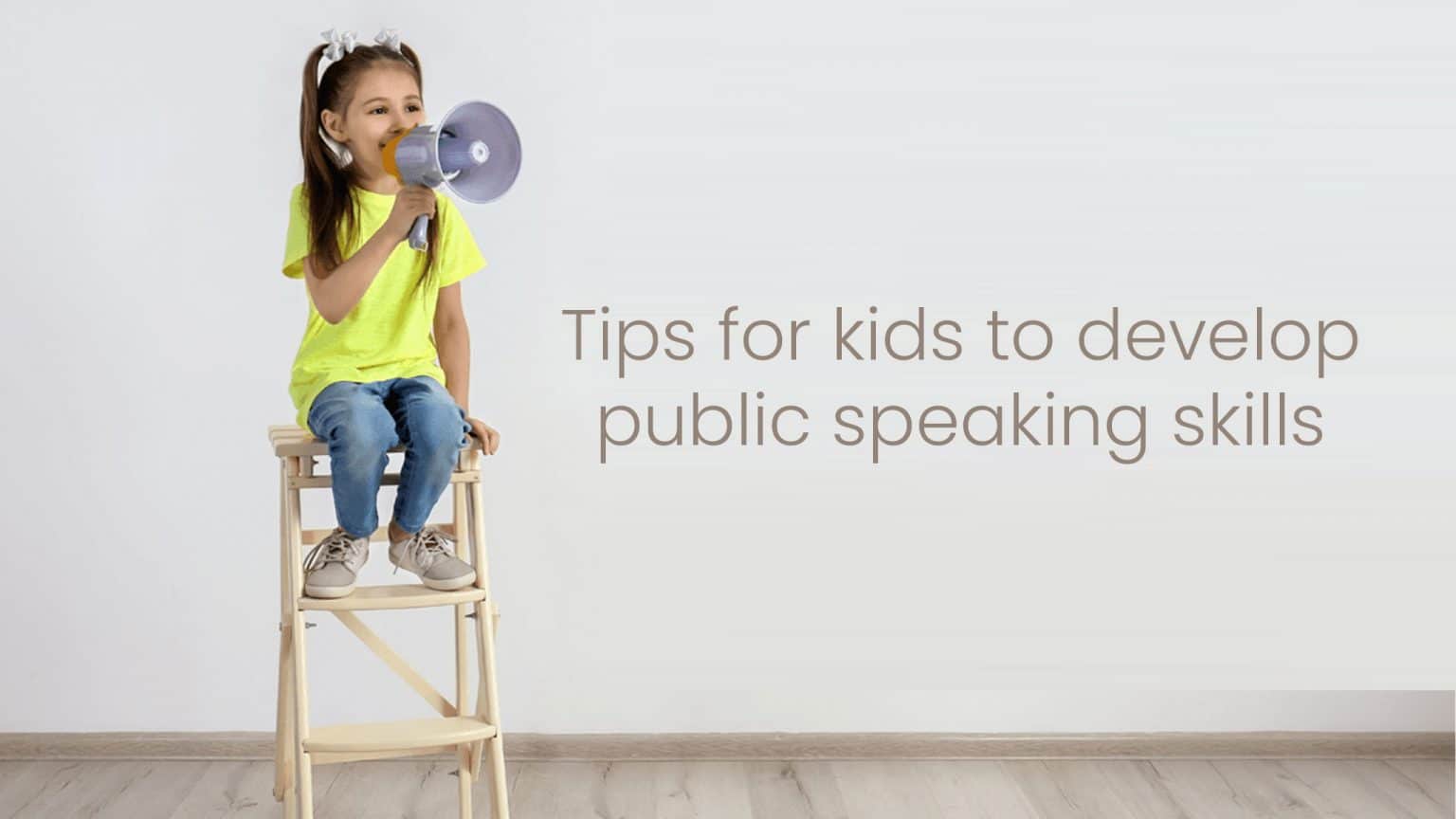We’ve all anxiously fumbled in front of an audience while giving a presentation, speech, or even expressing our opinions to the teachers in front of the entire class. When you first meet someone, you observe their mannerisms, which indicate a lot about them. This is why public speaking is so important, and by practicing it early in life, one can learn how to stand out from the crowd and achieve tremendous success.
Why are public speaking abilities so vital for children?
Public speaking is one of the most crucial abilities to have in today’s competitive world, and it plays a significant role in the growth of children as well as their future jobs. Children’s critical thinking, confidence, persuasion, and vocabulary can all benefit from public speaking. Here are some suggestions for developing public speaking skills in children:
1. Interactive public speaking activities-
Involve kids in exciting and imaginative public speaking activities to keep them interested. This will not only pique their curiosity but will also boost their self-assurance. Making flashcards with various topics and allowing the kids to pick one and give a speech about it, or giving them a fake scenario in which they have to sell a product or present something would help them learn while having fun.
2. Ted talks, speeches, and Podcasts-
Everything has become so accessible thanks to the Internet that it is now feasible to acquire and absorb content as well as develop skills from anywhere in the world. Parents can introduce their children to a variety of podcasts and TED speeches, which will help them recognize different characteristics in different presenters. It also teaches kids how to present themselves, speak, interact with the audience, motivate them, and expand their vocabulary.
3. Participating in competitions-
Children can participate in a variety of platforms and competitions to strengthen their oratory skills, conquer stage anxiety, gain assertiveness, and become more competitive. Participating in school debates, allocution, recitation, and local competitions can help them with this.
4. Reading Books, News, and articles-
Making reading a habit for children can help them develop in a variety of ways. They can increase their general knowledge and awareness of their surroundings by keeping up with news and current events. Reading articles and books can help kids learn more about areas they’re interested in while also encouraging them to be more creative. All of these exercises can help students expand their vocabulary and develop suitable sentences when speaking in public.
5. Working on personality-
Anyone who works on their personality gains confidence quickly. Tone, volume, style, and speaking speed are all areas where you can make improvements. Other factors to consider include removing filler words and constantly smiling while speaking in public to help a child enhance their public speaking skills.
6. Practice-
The adage “practice makes perfect” is certainly familiar to you. Allowing a child to record his speech on his phone and listen to it afterward to see where he can improve his skills can encourage him to practice public speaking. You can use a variety of other strategies, such as those listed above, to assist him to develop interest and practice more frequently. Public speaking is beneficial to children’s development and future. It should be a part of a child’s daily routine, just like any other subject taught in school. We tend to disregard public speaking because it is not tested nor considered a key topic in schools. Developing public speaking skills is a natural path to a great career for your child.
South East Asea Coding Club course uses interactive teaching methods to improve Confidence, Communication, Intelligence, and Emotional Quotient in children, which are typically disregarded in today’s academic world. Our curriculum is created with each child’s ability to absorb information in mind while also being challenging to them. This Leadership Communication curriculum, created by today’s specialists for tomorrow’s future, covers every facet of public speaking, as well as many other essential life skills.








